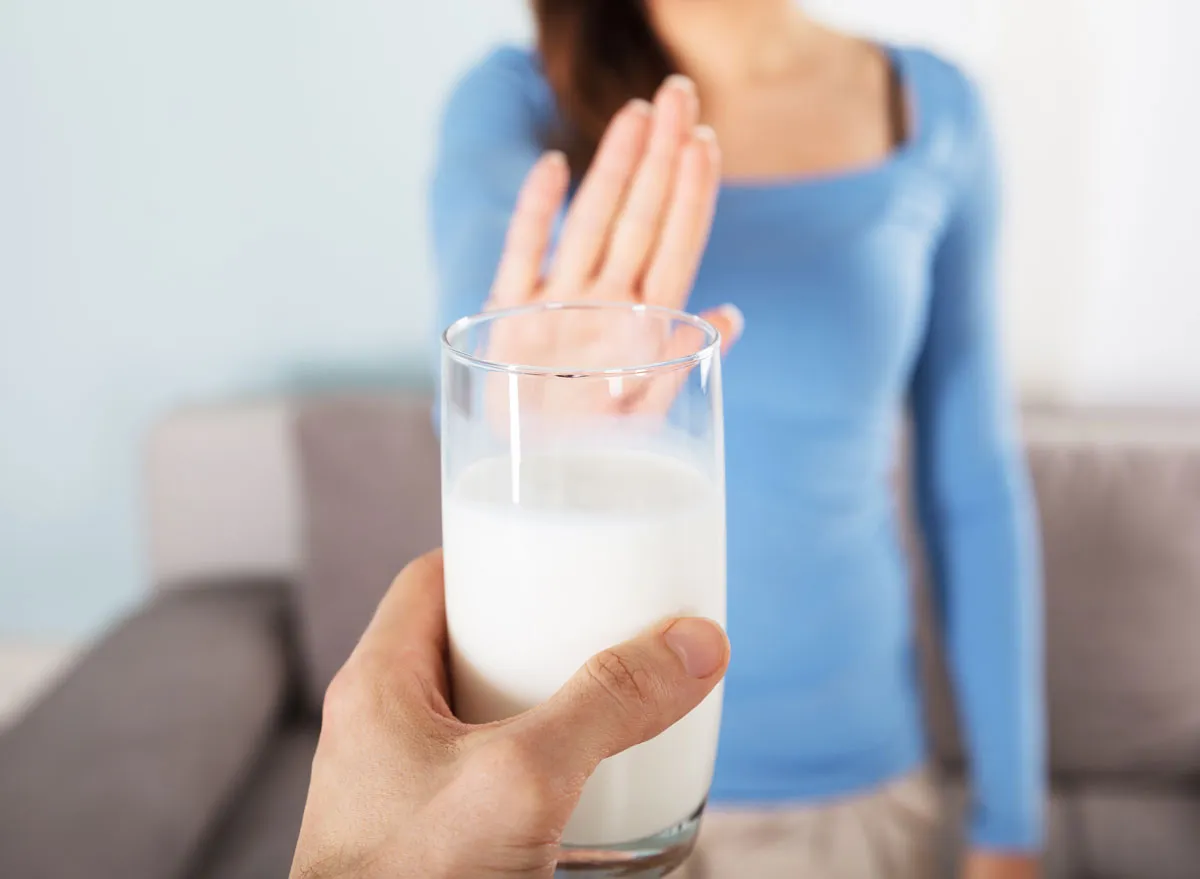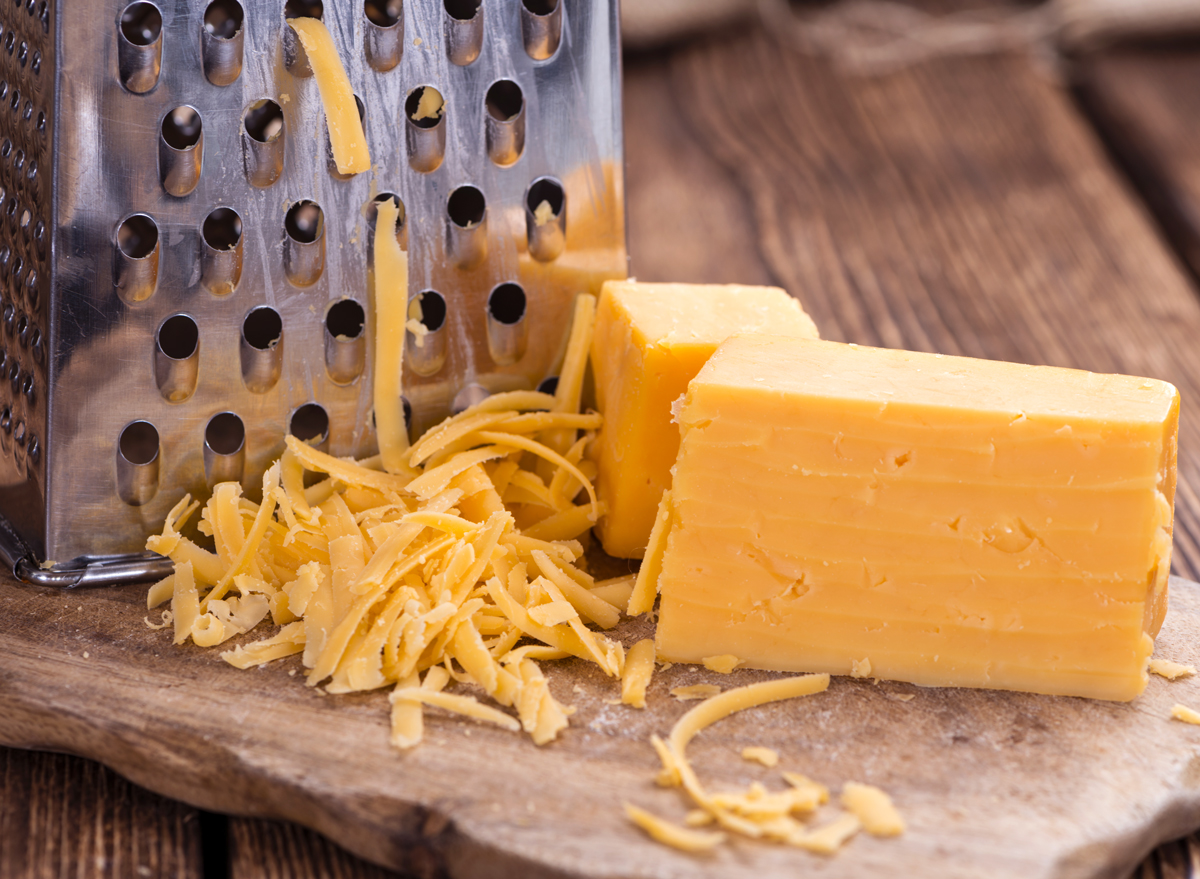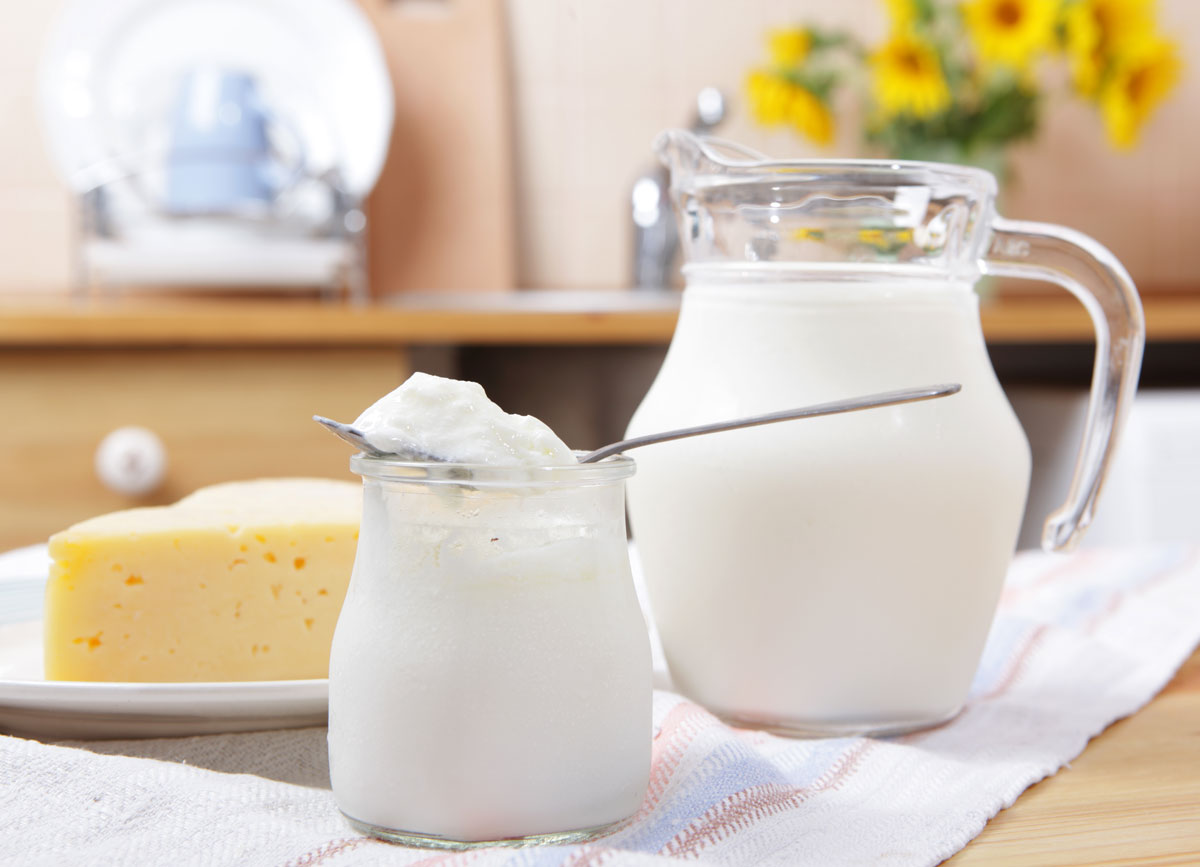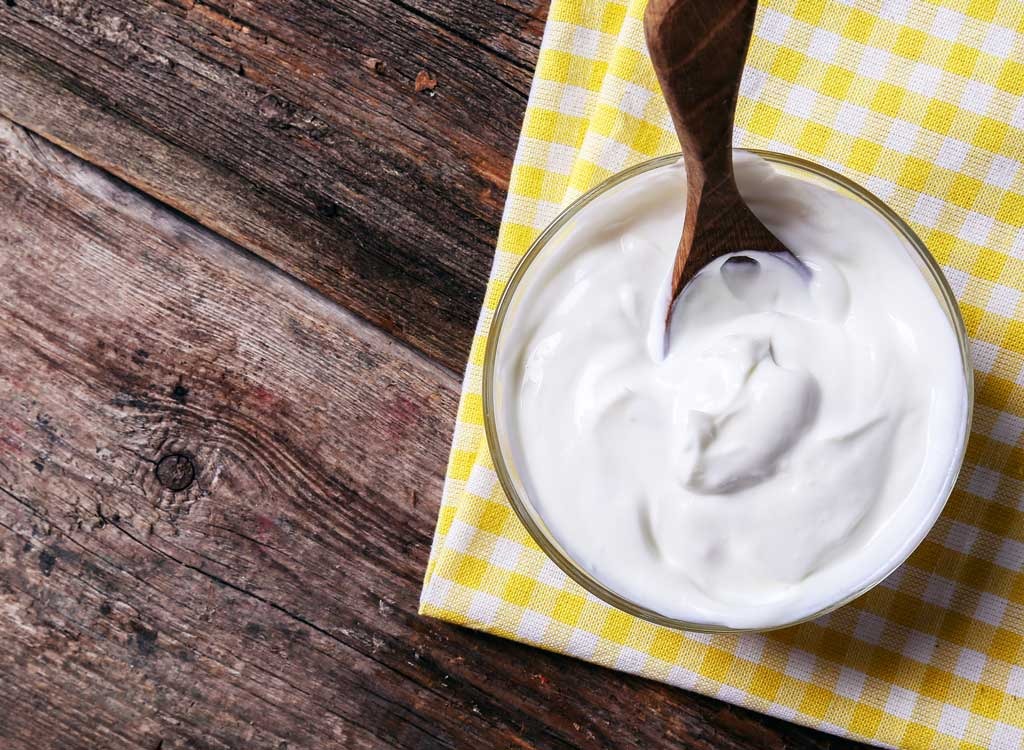Side Effects of Giving Up Dairy, According to Science

Many years ago, I decided to give the Whole30 diet a try. In a nutshell, this food elimination plan challenges you to cut out gluten, dairy, alcohol, refined/added sugars, and legumes for—you guessed it—thirty days. The goal is to slowly reintroduce these food groups back into your diet to see how your body responds, hopefully alerting you to sensitivities. For me, it was a life-changing experience because I quickly realized I was lactose-intolerant. Since then, I never consume dairy products, apart from the unexpected treat for a special occasion. I’ve experienced plenty of benefits—and a few drawbacks—from giving up dairy, all of which are worth considering before opting into this eating plan.
While my experience with dairy is specifically catered towards my body, there’s no denying that everyone’s bodies are different. However, if you too experience any of the following side effects of giving up dairy, it may be time to talk to a doctor and limit these foods for good. Here are some side effects to look out for, and for even more healthy eating tips, be sure to read up on our list of The 7 Healthiest Foods to Eat Right Now.
It could help you curb inflammation.

While many people call a dairy-free diet ‘anti-inflammatory,’ but this isn’t 100% true. It all depends on your unique body, so if you are sensitive or allergic to dairy, then dairy could be an inflammatory food, but if you’re not, you may notice little difference, says Serena Poon, a celebrity chef, and nutritionist.
As she explains, the Food and Drug Administration considers milk to be one of the top eight allergens in the United States. So even if you’re not sure if your dairy consumption is causing inflammation, it is possible.
Why does this matter? “Chronic inflammation in the body is like putting yourself into constant stress. While a little bit of stress can be okay for a short amount of time, prolonged systemic stress has been shown to lead to illness,” she explains.
If you suspect you have too much cheese, yogurt, and ice cream, try to take a break and see how your system responds. “If you feel more energized, less bloated, and that you have an improved sense of well-being, you might want to consider giving up dairy,” she says.
It could also be worthwhile to experiment with types of dairy since some people have less of a reaction to fermented dairy (yogurt or kefir) and goat or sheep’s milk. Here are 9 Signs of Lactose Intolerance You Should Never Ignore. And as always, if you suspect something, be sure to talk to your doctor.
You may experience less bloating.

Cheese lovers know the struggle of enjoying a carefully crafted cheese plate at the start of the party and then spending the rest of the night attempting to suck in their tummy. One of the reasons cheese can cause bloating is its dairy content and how we digest it, explains Dr. Josh Axe, D.N.M., C.N.S, D.C., author and the founder of Ancient Nutrition. “Bloating, which is caused by excessive gas in the intestines, occurs when proteins, sugars, and carbohydrates can’t be broken down properly,” he continues.
For those who struggle with digesting dairy foods, removing them from their diet can help to reduce overall bloating and gassiness.
Feeling bloated? Here are 25 Tips on How To Reduce Bloating In Less Than 24 Hours.
You may experience improved digestion.

Believe it or not, Poon says many people find it difficult to digest the milk protein lactose. In fact, it is estimated that about 68% of people in the world experience lactose malabsorption, which is the precursor to lactose intolerance.
“If you are amongst the population who cannot digest milk well, you may experience bloating, gas, or diarrhea when you eat dairy products,” says Poon.
Poon says to give up dairy for a week and then gradually add the foods back into your diet to test it yourself.
“Take note of how you feel. If you feel bloated, sluggish, or have discomfort in your digestive system when you eat dairy, a shift to a non-dairy diet could be a great option to support your health,” she says.
Related: What’s the Difference Between Lactose-Free and Dairy-Free?
You could experience clearer skin.

Dr. Axe says research suggests that consuming dairy may lead to increased acne and breakouts. This is partly because conventional milk products—milk, cheeses, butter, and so on—contain anabolic steroids and growth hormones that may cause acne. When you give up dairy for a few weeks, see how your pores respond. If you notice fewer breakouts along your cheeks and chin, it’s a critical sign that you may have been allergic.
You may experience calcium or vitamin D deficiencies.

Since dairy is an essential food group, cutting it out completely could result in some deficiencies. Specifically: calcium and vitamin D. Calcium makes up our bones and teeth and is beneficial for our vascular, nerve, muscle, and hormonal vitality. On the other hand, Vitamin D supports healthy bone growth, reduces inflammation, helps our immune system, and supports glucose metabolism, explains Poon.
To ensure you receive what your body requires, Poon says to eat calcium-rich foods, including tofu, kale, spinach, and broccoli.
“Since your body does not generate vitamin D on its own, it is important to supplement your diet with this essential vitamin. A vitamin D deficiency can be very dangerous, but there are many other foods like oily fish or egg yolks, supplements, and sources of vitamin D,” she adds.
Dairy is also an easy source of protein in most American meal plans, so if you decide to cut it out of your diet, be sure to boost your protein intake in other areas of your diet.
Get even more healthy eating tips straight to your inbox by signing up for our newsletter!